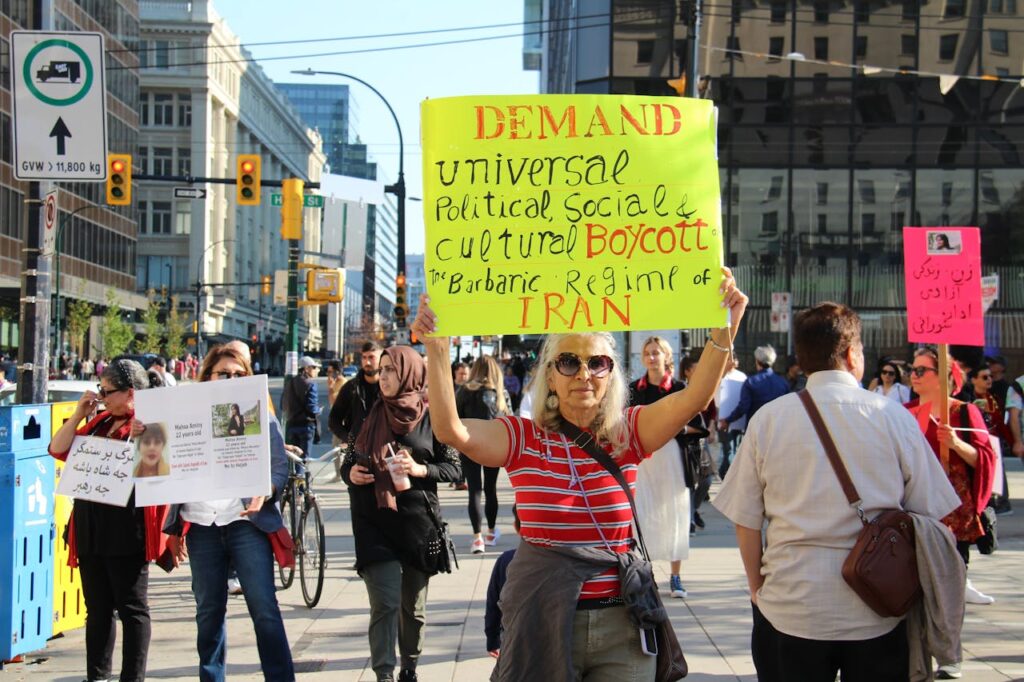We’re living in passionate times when it comes to hot-button issues like politics, race, and religion. Strongly-held beliefs can be healthy expressions of our values and identities. But they can also be powder kegs that explode in emotional meltdowns when we feel those beliefs are under attack.

In our era of social media outrage and polarized discourse, the threat of ideological meltdowns looms larger than ever. Let’s look at the psychological forces behind this phenomenon and how to keep firm beliefs from derailing your mental health.
Ideologies as Identity Anchors
For many people, ideological beliefs form a core part of how they define themselves. Their political views, religious faith, and perspectives on racial issues can be deeply intertwined with their sense of self-worth and moral integrity.

There’s nothing inherently wrong with this. Ideologies help anchor our identities and code our values. The potential for problems arises when we become so fused with our beliefs that we cannot separate rejection of the ideology from rejection of our whole selves.
Perceived Attacks Spark Intense Reactions
When we feel our core ideological beliefs are being threatened or undermined, it can spark the same physiological stress response as a physical attack. Our bodies go into a fight-or-flight state as if our actual survival is endangered.

This is because ideological attacks register as identity attacks in the brain. Challenging someone’s political views or religious convictions doesn’t just dispute abstract ideas – to the ideologue, it assaults the very essence of who they are as a person.
The result can be an overwhelming surge of anger, anxiety, and distress as intense as facing a true crisis situation. This primes the mind for an emotional meltdown or lashing out irrationally to neutralize the perceived threat.
Online Discourse Amplifies Triggers
In-person dialogue and good-faith debate still allow room for nuanced discussion of ideological differences. But online, especially in social media’s ideological echo chambers, discussions tend to be more binary – you’re either an ally or an enemy of the ideology.

Any disagreement or criticism can easily be construed as an assault by the opposing “team.” This us vs. them mentality supercharges the psychological forces behind ideological meltdowns, dialing up reactivity and aggression.
Tips for Defusing Ideological Buttons
So how can we stay grounded in our beliefs without flying off the handle emotionally when they’re challenged? Try these tips:
- Practice separating identity from ideology. Your beliefs may be important, but they don’t solely define your worth as a human being.
- Look for the reasoning behind views you oppose, not just dismissing them as evil or stupid. This helps depersonalize disagreements.
- Be willing to acknowledge areas where your ideology has flaws or contradictions. Ideological blind obedience makes meltdowns more likely.
- Surround yourself with people who will call out outrageous emotional outbursts. Outside perspective keeps reactivity in check.
- Stay humble, open-minded, and intellectually curious. The more we protect egos around beliefs, the more fragile those beliefs become.

We shouldn’t repress passions about causes we care about. But ideological meltdowns rooted in threatened identities are emotionally and socially toxic. Work on defusing your philosophical ideologies from your sense of self-worth.
Hey there! We hope you love our fitness programs and the products we recommend. Just so you know, Symku Blog is reader-supported. When you buy through links on our site, we may earn an affiliate commission at no extra cost to you. It helps us keep the lights on. Thanks.
Disclaimer: The information provided in this discussion is for general informational and educational purposes only. It is not intended as medical or professional advice. Only a qualified health professional can determine what practices are suitable for your individual needs and abilities.
